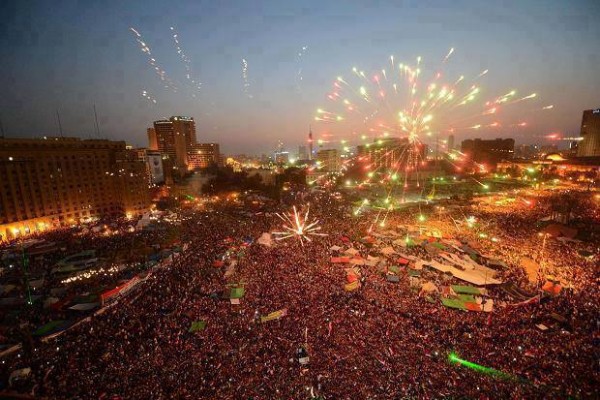
Two and a half years ago I wrote about my thoughts on Egypt as I watched the Egyptian people take to the streets to protest and eventually overthrow Hosni Mubarak. I followed along on Facebook as the tour manager who led me around the country in 2008 gave a continuous account of what was happening and his reaction to the events. I was hopeful then that Egypt was on its way to a better future – that democracy would take hold, a good leader would be elected and, most importantly, people’s lives would improve.
For the last week, I have been once again engrossed with events in Egypt. I watched online as millions of Egyptians headed back to the streets to try to overthrow their leader once again. This time, I have mixed feelings.
On the one hand, President Morsi was elected in what many people say was a fair election, winning nearly 52% of the vote. If people are unhappy, shouldn’t they just voice that at the polls, voting Morsi out office the next time they have the chance? After all, that’s the way it works here in the United States. That’s the way we were taught democracy is supposed to work.
On the other hand, who says our form of democracy is the right way or even the only way? After all, a presidential candidate in the United States could conceivably win the popular vote but lose the election due to the existence of the Electoral College. We had a presidential election come down to recounts and hanging chads and an ultimate Supreme Court decision that very well could be seen by outsiders as the court choosing our president rather than the people. For much of our history, we prevented blacks and women from voting and the Supreme Court just effectively repealed our Voting Rights Act, a law designed to ensure equal voting rights for everyone. Not to mention our so-called representatives who seem more concerned about pushing their own political agendas than truly representing the wishes of the people.
We also went through periods of unrest and violence, from the Civil War of the 1860s to the Civil Rights Movement in the 1960s and in the century in between. While we have always had a peaceful transition in the White House, we certainly have not been immune to violence or mass protests, although never on the scale seen this week in Egypt.
In short, who are we to judge what’s happening in Egypt?
Who are we to say what their form of democracy should look like?
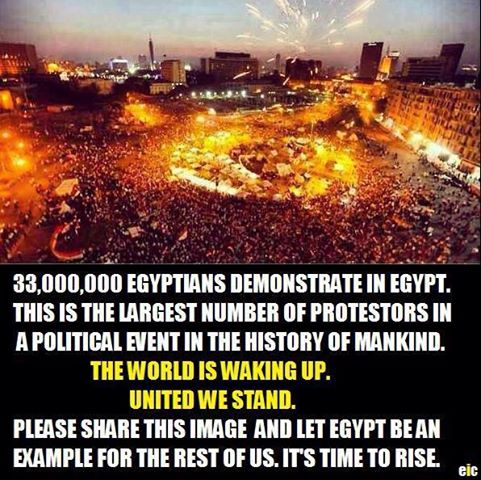
I can’t purport to be any kind of an expert on what is happening in Egypt, but based on what I have seen from Egyptians themselves on social media, I think this statement by Egyptian Omar Kamel sums things up best regarding how many of the people on the streets feel about now former president Morsi:
The elections were a sham, and the Carter observers said as much, if you paid any kind of attention whatsoever. Carter himself even said that given the restrictions imposed on their monitoring efforts, he should never have agreed to be involved in those elections.
Voting booths were empty, turnout on the first day, depending on the governerate, was estimated at between 3% to 15%. Magically, the next day, we were told that 26 million invisible voters had voted. Exciting. You comfortably ignore over 3,000 complaints from polling stations, reports of National ID printing machines gone stolen, and an electoral registry that has been estimated to have about 9 million ‘paper’ voters in it.
A presidency is NOT a carte blanche, and we are not supposed to wait 3 years longer when the president has broken every, every, every single promise he’s made. Presidential Team? Nothing. Revolutionary Demands? Jack shit. Justice for Martyrs? Nothing. Nada. Zip. Wages? Get real. Social Justice? Right. Healthcare, forget it. Basic honesty? Zilch. He basically *****ed the laws he swore (3 times) to uphold the second he started coming up with completely self-satisfying constitutional declarations, Morsi proved that whether or not he was ‘democratically elected’, there was certainly nothing ‘democratic’ about him.
And from my former tour manager on Facebook:
I have been thinking for the last 10 minutes how to best phrase a status update to communicate to my friends what just happened, how I feel etc. I find myself utterly unable to. I am too overwhelmed, too relieved and too happy, I feel grateful, for the hope I was clinging to for 2 years was rewarded. One sentence keeps repeating itself though, over and over again: “We brought down the Muslim Brotherhood, for the first time in history a fascist Islamic regime was brought down from the inside – by the people…in 4 freckin’ days!” This changes everything, for the whole region. Heads up world, before too long other countries will know how to walk like an Egyptian.
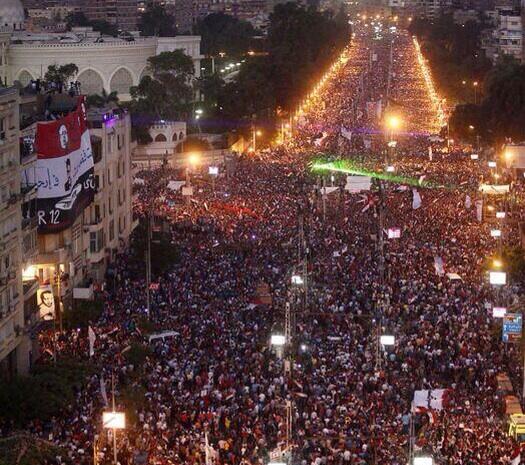
Somewhere between 12 and 33 million Egyptians took to the streets throughout the country on June 30.
I don’t know about you, but that’s a pretty staggering number, even at the low end. Egypt’s population is around 80 million people, with around 50 million registered to vote. That’s anywhere from 15 to 40% of the entire population that came out to protest against Morsi’s presidency, or 24 to 66% of registered voters. You don’t see that many people on the streets – possibly the largest demonstration in world history – for something they feel lukewarm about. These people were passionate and they felt empowered and I think that’s something to be admired.
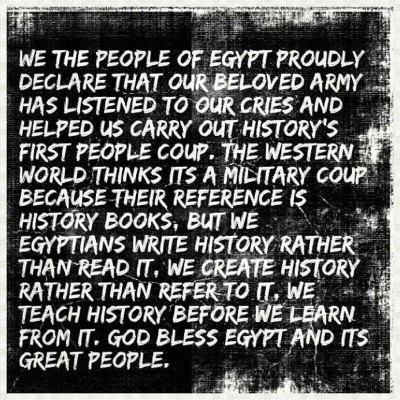
So no, this was not a military coup, as CNN and other media so quickly claimed as it was happening. If anything, it was a people’s coup – it was the Egyptian people coming together for what they believed with all their hearts was the good of their nation. And while instances of violence have surfaced in the days that followed, they largely did it peacefully. While the announcement was made by a leader of the military, he was surrounded by representatives from various sectors of Egyptian society and he handed over the reins to a civilian, not the army.
At the same time, a lot remains to be done in Egypt. In the days since Morsi was brought down, violence has increased as pro-Morsi supporters have held their own protests. There are indications that the Muslim Brotherhood may try to seize the power back. We don’t yet know whether the elections that will ultimately be held will be run fairly so that Egyptians regard the winner as legitimate. Even with a strong, fair president in office, it will be a huge task for the new president to get the country back on track.
I would be remiss not to express that I am also deeply concerned about recent increases in sexual violence in Egypt, particularly in Cairo in and around Tahrir Square. While groups have formed to try to protect women as they demonstrate, the fact that mobs of men are attacking and gang raping women in public is incredibly disturbing. And it’s not how I want to think of the Egypt I visited five years ago.
At the end of the day, I am left feeling much the same as I did in January 2011 – happy for the Egyptian people and cautiously optimistic that long-lasting change for the better isn’t far away. I look forward to the day that I can go back to see a revitalized country enjoying whatever form of democracy works best for it. And despite however the Egyptian people may feel about the U.S. government’s involvement with Egypt, I hope they will continue to welcome us Americans with open arms.
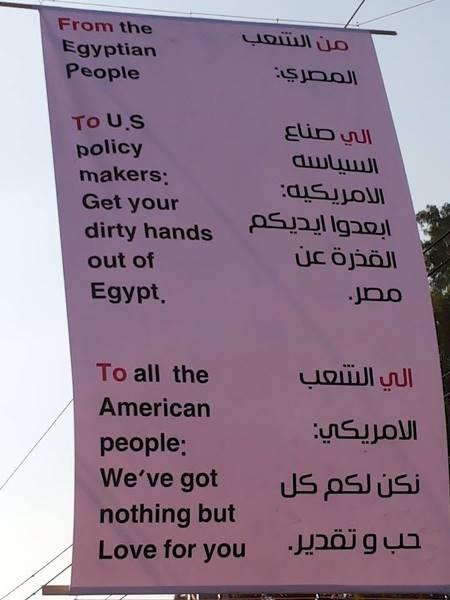
Photos: All taken from Facebook, where no credit was given.
